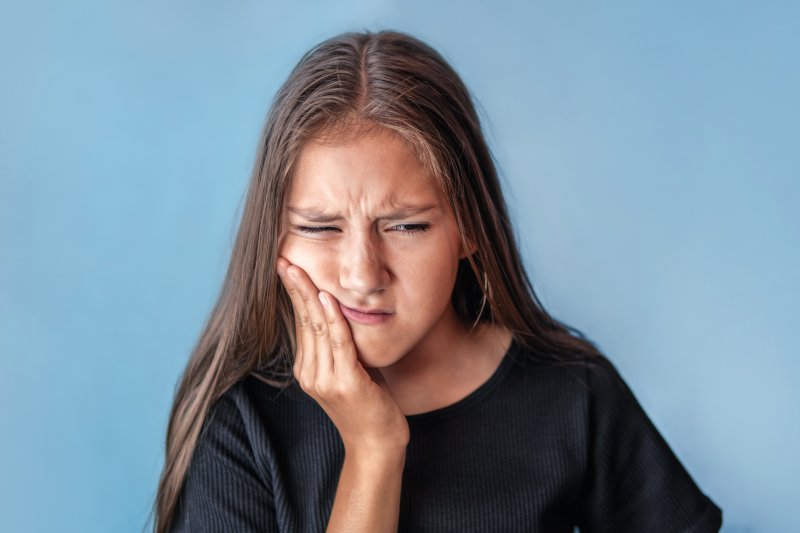
If your kiddo says their jaw feels bad, you may dismiss the idea at first. “It’s probably nothing to worry about,” you’d think.” Still, you’d do well to take their concern more seriously. There’s a good chance your child is dealing with TMD. If so, you’ll need to take the proper steps to relieve their pain. Luckily, your Silver Springs dentist can help. Here’s how to tell if your child has TMD and some ways to ease their discomfort.
Does Your Child Have TMD?
Often enough, people assume TMD is an adult-only problem. However, the disorder impacts nearly as many kids as grownups. You’ll want to keep an eye out for it among your children.
Much of today’s science bears out this conclusion. For example, consider a 2014 study published by the North American Journal of Medical Science. This research found that up to 68% of kids and teens develop TMD at some point. What’s more, it linked the condition’s various jaw effects with high emotional stress. This fact supports the idea that anxious children are at high risk of jaw issues.
Of course, anxiety isn’t the only relevant marker of TMD. There are other signs you should watch for in your kids. In particular, these include:
- Difficulty opening or closing their mouth
- Jaw pain
- Ear aches or ringing in the ear
- Popping or clicking of the jaw joint
If you think your child has TMD, visit a TMJ-specialized dentist. They’ll perform a proper diagnosis to learn how your youngster is doing.
How Can You Ease Their Pain?
Even if a kid does have TMD, there’s no need to panic. There are various things you can do to ease their pain. Among them, the best approaches are lifestyle changes and dental care.
For mild TMD symptoms, instruct your child on better lifestyle habits. One example is to have them rest their jaw when it’s tender. Similarly, help them avoid hard or chewy foods that strain their facial muscles. You might even monitor and regulate your child’s daily stress levels.
When your kiddo’s TMD is severe, dental care is the better course of action. The right dentist could offer various TMJ/TMD therapies. For instance, they might provide an occlusal splint – an appliance that adjusts your child’s jaw at night. Some dentists can even use a TENS machine to reduce facial pain.
By knowing how to tell if your child has TMD, they’ll have less pain and stress in their lives. So, talk to your dental provider about possible diagnosis and care.
About the Practice
Exceptional Dentistry is based in Silver Spring, MD. Led by Dr. Sara Saba, our practice seeks to help patients with sleep apnea and TMD-related pain. We thus offer a range of useful services for both oral conditions. In particular, our team is well-equipped to provide sleep apnea treatments and TMJ/TMD appliance therapies. For more information or to book a visit, you can reach us on our website or by phone at (301)-460-3331.
